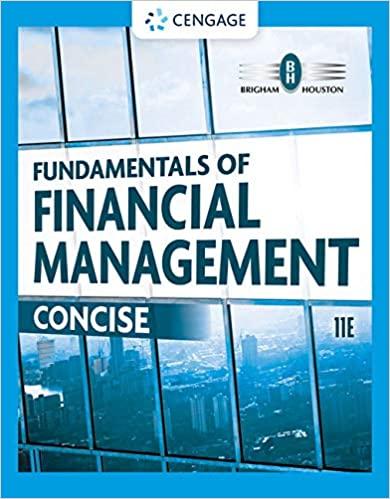Question
You are considering attending business school.Of course it will be fun to escape the daily work grind for a couple of years, but bottom line
You are considering attending business school.Of course it will be fun to escape the daily work grind for a couple of years, but bottom line you hope to make a business decision regarding an MBA (it seems only fitting).
If you compare your salary over the next five years based on attending vs not attending B School, you believe it will look like this:
Years here are August 1 - July 31.The idea is that at the end of year 1, you will have an internship where you will make $7,000.At the end of your 2, you expect to take June and July off and start your new job on August 1 (beginning of year 3).In your first year at your new job you will make $85,000 but also get a $10,000 signing bonus.In your second year you will get a raise to $90,000, but no signing bonus.Use end of year timing for compensation cash flows.
Your expenses over your two years of B school will be $38,000 in the first year, and $35,000 in the second year.Assume that these expenses are after-tax, and you pay the expenses at the beginning of the year in each of your two B-school years.
Because you're a student, assume that your living expenses will be $5,000 less per year in each of the next two years.This again is after-tax money you will be saving.Assume timing on the cost of living savings is end of year 1 and end of year 2.
At the end of five years, let's assume that your salary will grow at 4% per year if you have an MBA, but at only 3% per year (a little more than inflation) if you don't have an MBA.Use a 30% tax rate for all years, and an 8% discount rate.For your salary projections, use end of year timing for CFs.
You are 30 years old now, and you expect to work for 28 years (until you're 60) after you graduate from B-school.Let t0 be the day you incur all expenses for the first year, and assume all your salary amounts come at year end.
What is the NPV of going to B-school?
Step by Step Solution
There are 3 Steps involved in it
Step: 1

Get Instant Access to Expert-Tailored Solutions
See step-by-step solutions with expert insights and AI powered tools for academic success
Step: 2

Step: 3

Ace Your Homework with AI
Get the answers you need in no time with our AI-driven, step-by-step assistance
Get Started


